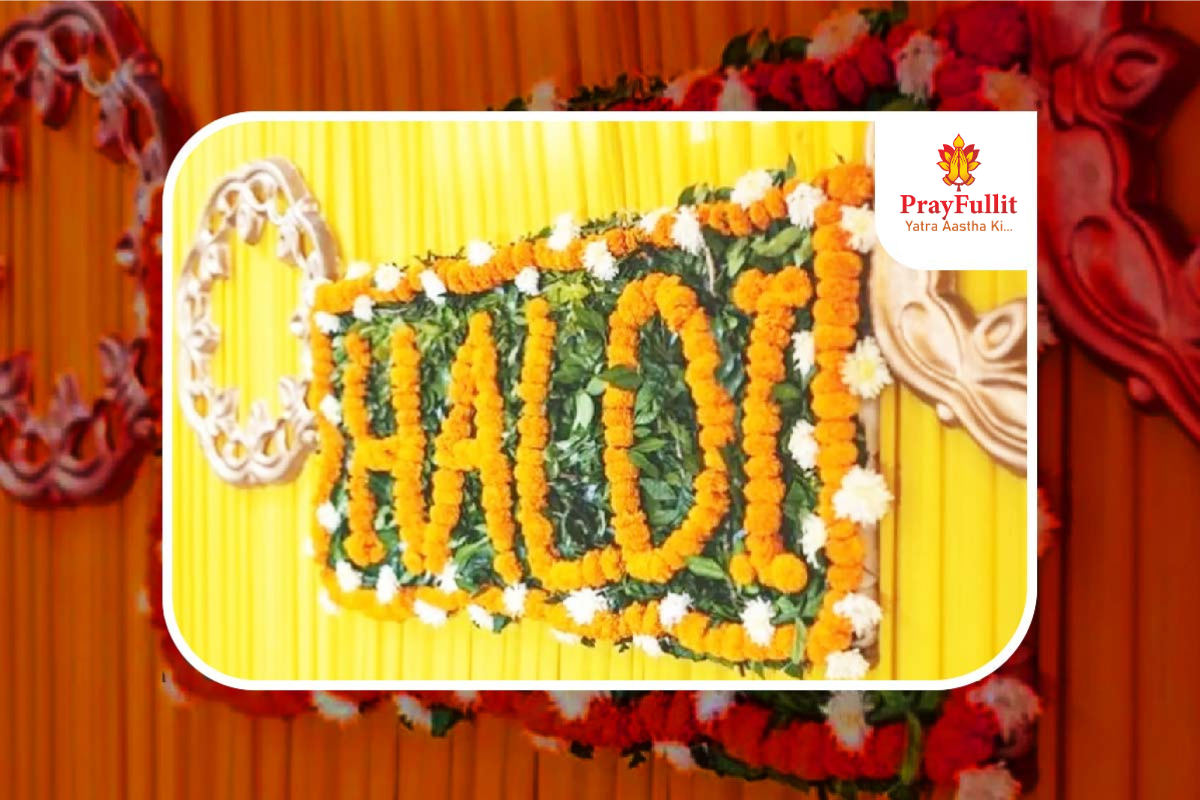Book Haldi Ceremony Online - Book Expert Pandits for Haridra Sanskar
The Haridra Ceremony, popularly known as the Haldi Ceremony, is a vibrant and essential ritual in Hindu culture. Rooted in the Sanskrit word "Haridra" (Turmeric), this ceremony is performed during weddings, childbirth, and other auspicious milestones. It is a sacred process of purification, designed to ward off evil energies and bless the individual with a radiant physical and spiritual glow.
At Prayfullit, we provide experienced Vedic Pandits who bring traditional sanctity to your celebrations. We ensure the Haridra Sanskar is performed with the right mantras and rituals, turning a festive moment into a deeply blessed experience for the bride, groom, or newborn.
The Importance of Haridra (Haldi) Ceremony
- Purification and Protection: Turmeric is revered in the Vedas for its antimicrobial and "Sattvic" properties. The ritual purifies the body and soul, shielding the individual from the "evil eye" (Nazar).
- Auspicious Beginnings: Known as Mangal Dravya, turmeric symbolizes prosperity and fertility, ensuring a fruitful start to a new chapter of life.
- Beautification & Health: Beyond the spiritual, the Haldi paste (Uptan) acts as a natural cleanser, enhancing the skin's glow and calming the nervous system before the big day.
- Communal Harmony: It is a joyful social ritual that strengthens bonds, as family and friends gather to apply the sacred paste and share in the excitement.
Timing and Traditions
- Wedding Rituals: Typically held a day or two before the wedding. It is usually performed separately for the bride and the groom at their respective homes.
- Childbirth & Sanskars: In some traditions, a mild Haridra ritual is performed during newborn ceremonies to signify health and protection.
- Customized Pastes: Depending on your regional tradition—whether it’s the Gaye Holud of the East or the Pithi of the West—our Pandits guide you on the specific Vedic ingredients to include.
The Sacred Procedure of Haridra Ceremony
Our Pandits ensure the ritual follows traditional Vedic protocols:
- Ganesha Pujan: The ceremony begins with a prayer to Lord Ganesha to ensure the wedding or event proceeds without obstacles.
- Preparation of Haridra Paste: The Pandit sanctifies the turmeric paste (often mixed with sandalwood, milk, or rose water) with specific Vedic mantras.
- Ritualistic Application: The paste is applied in a specific order—usually starting from the feet and moving upward to the knees, arms, and face—symbolizing the flow of energy.
- Kangana Bandhan: In many wedding traditions, the Pandit ties a sacred thread (Moula) on the wrist to protect the individual until the main ceremony.
Preparation Checklist for the Family
- Sattvic Haldi Paste: Prepare a fresh paste using pure turmeric root or powder, sandalwood, and oil or milk.
- Floral Decor: Decorate the seating area with yellow marigolds and mango leaves to invite positive vibrations.
- Traditional Attire: The participants usually wear yellow clothing to resonate with the color of the sun and the turmeric.
- Samagri: Our Pandits provide a list including incense, oil lamps, betel leaves, and seasonal fruits for the deity offerings.
Why Choose Prayfullit?
- Verified Vedic Pandits: We send traditional scholars who understand the spiritual depth behind the festivities.
- Personalized Rituals: We adapt the ceremony to your family's specific regional customs and Gotra requirements.
- Vibrant & Authentic: We balance the joy of the celebration with the seriousness of the Vedic protocols.
- Seamless Booking: Secure your professional Pandit through the Prayfullit app or website in minutes.
Book a Pandit for Haldi Ceremony via Prayfullit
Ensure your pre-wedding rituals are conducted with traditional accuracy and divine grace. At Prayfullit, we make it easy to book expert Pandits for your Haldi ceremony at home. Our verified Vedic scholars handle every aspect of the ritual—from Muhurat selection to the final Aarti—guaranteeing an authentic and stress-free spiritual experience for your family.
Download the Prayfullit App
Empower your festivities with Vedic wisdom. Book verified Pandits for home visits, get alerts for auspicious Muhurats, and access our other services. Carry your traditions in your pocket, wherever you go.
